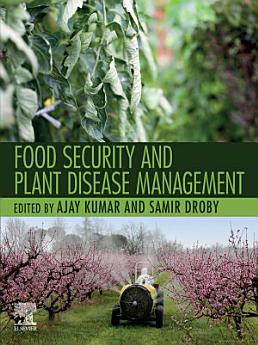Food Security and Plant Disease Management
O ovoj e-knjizi
O autoru
Dr. Ajay Kumar is currently working as an assistant professor at Amity Institute of Biotechnology, Amity University, Noida, India. Dr. Kumar completed his tenure (2018-2022) as a visiting scientist from Agriculture Research Organization, Volcani Center, Israel and doctoral research from Department of Botany, Institute of Science, Banaras Hindu University, Varanasi, India on the theme "Plant microbe interaction". In his research tenures, Dr. Kumar has published more than 235 scientific contributions in the form of research and review articles, books or book chapters with the leading International Journals or Publishers. He has wide area of research experience, especially in the field of Plant-Microbe Interactions, Microbial biocontrol, Postharvest management of fruits, Microbial endophytes related with the medicinal plants and cyanobacteria-pesticides interactions. Dr. Kumar actively engaged in editing book with the leading publisher like Elsevier, Springer, CRC Press, Willey and edited more than 48 books and currently serving as an Associate editor in Frontier in Microbiology, BMC Microbiology and special guest editor in Microorganisms or Plants MDPI, Journal.
Prof. Samir Droby is a senior research scientist at the ARO, the Volcani Center and Professor of Plant Pathology and postharvest Sciences at the Division of Biochemistry and Food Science at the Robert H. Smith Faculty of Agriculture Food and Environment, The Hebrew University of Jerusalem. Since 2013, he has been serving as the chair of the Postharvest Pathology Subject Matter Committee of the International Society of Plant Pathology. His research expertise include developing biological and natural based control strategies for postharvest diseases, microbiome of harvested commodities, mode of action of yeast biocontrol agents, pathogenicity mechanisms of Penicillium species on citrus and apple fruit and resistance mechanisms of fruits against postharvest pathogens. Prof. Droby has published more than 120 articles in peer-reviewed journals and 25 review articles and 27 book chapters on various topics related to postharvest pathology.






